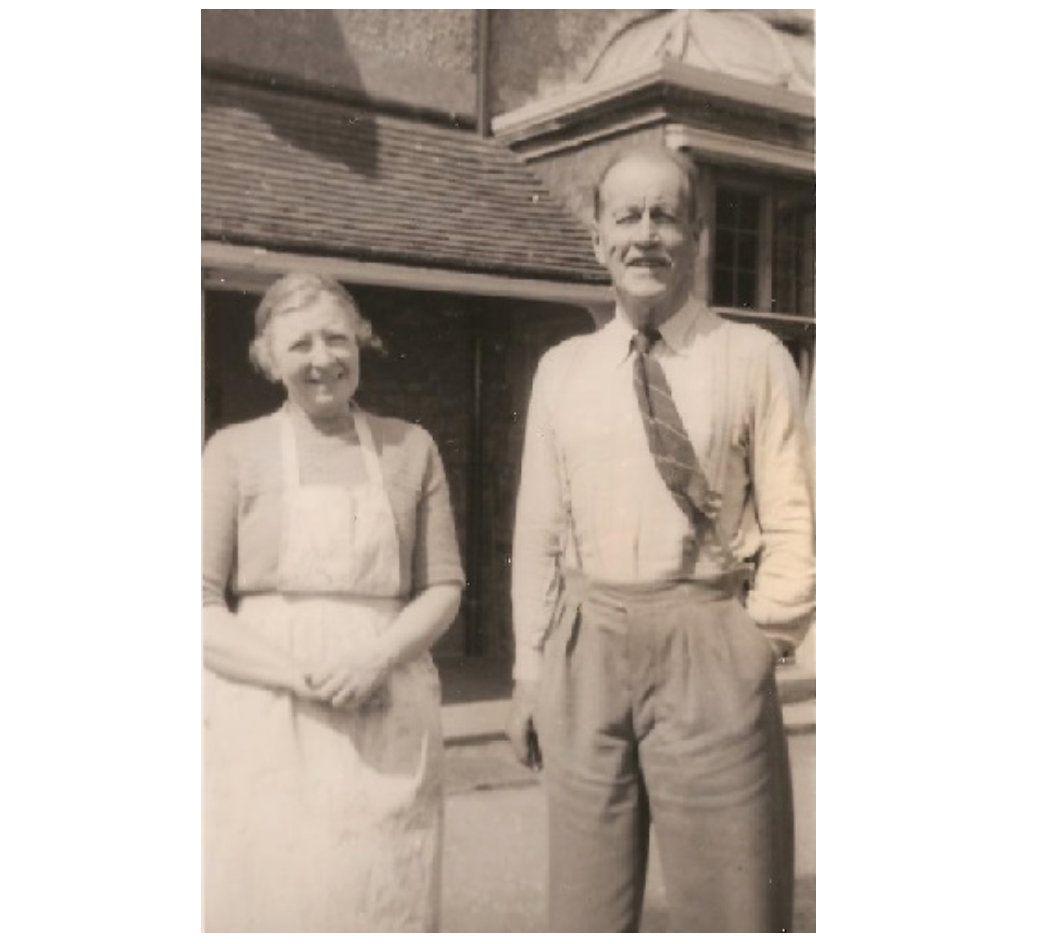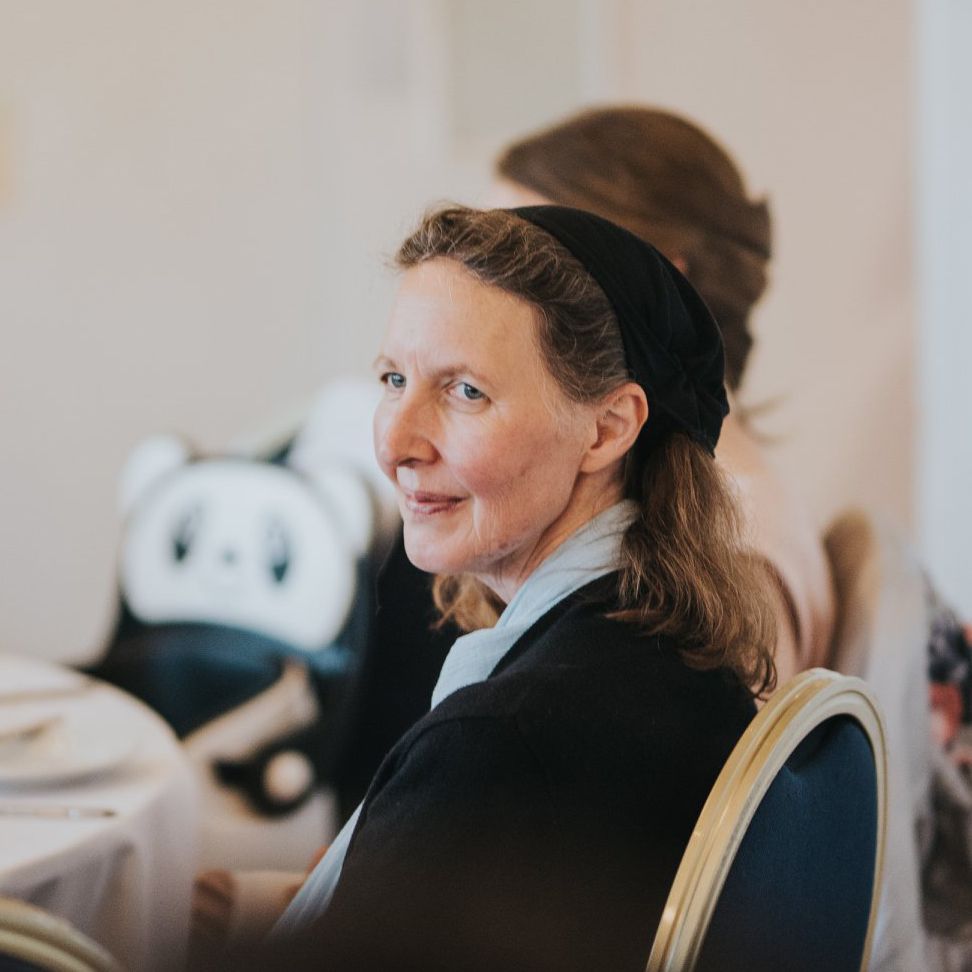After the War
After the war CHTL’s needlework skills developed further: he created stunning rugs, seat covers, and evening bags for Poppy and Anne - all of which he designed himself. He entered the Stevenage Craft competitions and ruffled many a feather amongst the W.I. ladies by beating them to first and second place!
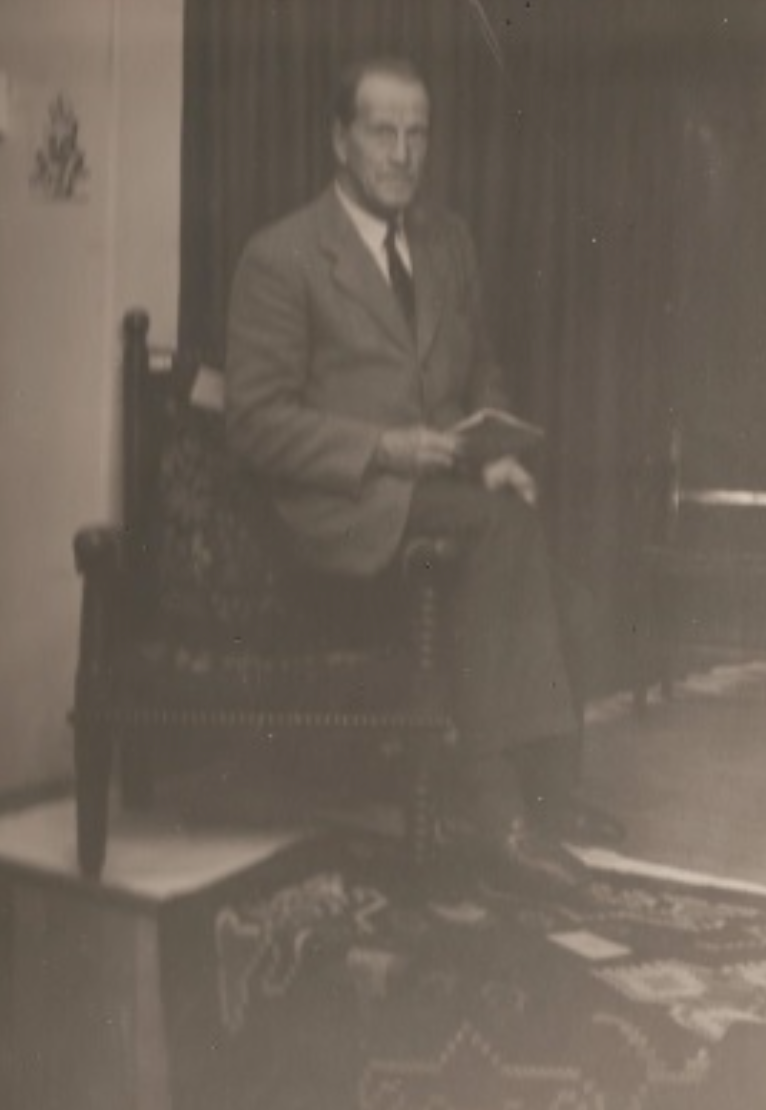
At the end of the war, Bob; fired up by his new found faith and knowing that the army would never have been a career choice for him; enrolled at Tyndall Hall, a theological college in Bristol. After learning basic Amharic, he then embarked on a new life as a medical missionary with the Bible Churchmen’s Missionary Society (B.C.M.S.) in Ethiopia. His qualifications for this role consisted of a short medical course which gave him something short of a nurse’s expertise. This was of course a lot more than the people in Ethiopia had and on the grounds that some medical help was better than none, Bob set about helping where he could - distributing medicine for the soul along with that for the body.
Bill chose to stay in the army and took up the opportunity to study for a B.Sc. Engineering Degree at the Military College of Science. He was posted to what is now Pakistan where there was a lot of unrest in the area with pressure being put on the British to grant independence; echoing the Irish fight for freedom and his father’s encounters with freedom fighters all those years before.The break up of the British Empire that Churchill had so long resisted began in earnest following the war. Pakistan came in to being as a new nation, separated from its mainly Hindu neighbour India, on the 14 August 1947.
Bill met up with Christian missionaries working in the area. Being challenged by their commitment and feeling more uncomfortable with the conflict between his growing Christian faith and his duties as a soldier, Bill decided to resign his commission and become a missionary. It took three years for the army to release him: he had been an outstanding officer of which they were in short supply of, and also they had invested in his training.
Silkingrad
As Bill was battling the army for what he believed to be right and fair, CHTL was embroiled in his own battles with those in authority, back home in Stevenage.
At the end of the war the returning troops, remembering how badly their fathers had been treated when they too returned home from fighting for their country, voted for a government they felt would be more sympathetic to the working man’s needs. Churchill may have been the great war leader but he was not perceived to be a desirable leader in peace-time: he was not a man known to be sympathetic to those on the lower rungs of society.
The new Labour government that came into power was faced with the devastation of London and other cities and the desperate need for new homes for the many displaced and homeless casualties of the Blitz. Sir Leslie Patrick Abercrombie came up with what is known as the ‘Abercrombie Plan’ which contained the idea to create the ‘sub- urbanisation of surrounding country towns’. This would provide much of the desperately needed accommodation and relieve the terrible over- crowding of the inner city slums: consequently people would be able to live in much healthier conditions. Of course this came at a cost – a cost borne by the people of communities such as Stevenage who were quite happy and content living in their rural idyll and who strongly objected to the government imposing this massive change to their way of life.
Stevenage was designated the first New Town on 1 August 1946. When Lewis Silkin, who was a minister in Clement Attlee’s Labour Government, arrived in Stevenage he found the town far from ‘silent for its size, and drowsy in the dullest degree’. (Charles Dickens) The plan was not popular with local people who protested at a meeting held in the town hall. CHTL as a Tory Councillor was very much in the fore amongst the opposition.
Among those demonstrating their protest was the Vice Chairlady of the Young Conservatives who lobbed a cabbage towards the offending Silkin’s head. She avoided arrest when the police realised that the offender was the ‘general’s daughter’ and decided that it was best to turn a blind eye to that particular misdemeanour!
Silkin was adamant at the meeting, telling a crowd of 3,000 people outside the town hall (around half the town’s residents): "I want to carry out in Stevenage a daring exercise in town planning" to which he received nothing but derision. "It’s no good your jeering, it’s going to be done" he declared. Trying to find a more conciliatory tone he continued arguing that Stevenage was the ideal spot for his vision of a ‘New Town’ which would attract people and light industry away from the over-crowded, smog-ridden capital.
Silkin called on the good people of Stevenage to ‘make some sacrifice’ and so to ‘provide for the happiness and welfare of some 50,000 men, women and children’. He tried to sell a vision of a large village with a utopian ’spirit of friendliness and neighbourliness, the sense of belonging to a large family, a community.’
Sensing that the carrot wasn’t going to tempt the stubborn mule of opposition to move forward and co-operate with him, he reapplied the stick, declaring that ;’The project will go forward, because it must go forward. It will do so more surely and more smoothly, and more successfully, with your help and co-operation. Stevenage will in a short time become world-famous. (Laughter from the audience) People from all over the world will come to Stevenage to see how we here in this country are building for the new way of life.’
Silkin left the meeting to shouts of ‘Gestapo’ and ‘Dictator’. It was not only Young Conservatives who had shown their displeasure in a tangible way – some young boys had let down the tyres of the minister’s smart 25 h.p. Wolseley car and filled its petrol tank with sand.
Within two weeks, Tory Councillor Lucas had helped organise a referendum with 2,500 Stevenage residents taking part. The results showed that 52% were ’entirely against the sitting of a satellite town at Stevenage.’
The town soon made the front pages of the national press, not in the way Lewis Silkin had hoped for, but as the opposition to his plans became more vocal, local people changed the railway station signs from ’Stevenage’ to ’Silkingrad’: Clarence Elliot, who founded the Six Hills nursery, coined this name after Lewis Silkin’s announcement that Stevenage was to be the site of Britain’s first New Town. This had caused uproar, and on the night of 21 December 1946 Jack Franklin, with two friends (the sons of the local doctor), covered the Stevenage sign on the railway platform with their own version. CHTL would have very much approved of this little demonstration of defiance! P26 Stevenage in old photos compiled by Maggie Appleton, Alan Sutton Publishing Ltd
The Residents’ Protection Association, which CHTL was a prominent member of as a Tory Councillor, took the matter to the High Court in February 1947 and won on the point of order that Silkin had not properly considered the objections raised at the public Inquiry the previous October. However the politicians finally won the day persuading the Court of Appeal and the House of Lords to rule in their favour and the expansion plan went ahead.
Silkin got his own back on ‘Old Stevenage’, after the New Towns Commission had declared the Old Town would not be touched, the first significant building to be demolished in it was the Old Town Hall, where the government minister had suffered his humiliation.
p161 -162 Austerity Britain 1945 -51 David Kynaston-Kynaston [2007]
The new town was planned in line with up-to-date sociological thinking. Six self-contained neighbourhoods were created each with its own centre. In 1951 Stoney Hall and Monks Wood ”Estates” were the first to open their doors to receive the pioneering residents of the government’s daring experiment in social engineering. Bedwell was the next to be built in 1952. How Poppy and CHTL despaired at the mud and constant stream of heavy vehicles blocking up the roads and causing a constant din. Gone was the peace and tranquillity of the old Stevenage. At quite a pace the new town sprung up and was rapidly filled with London’s grateful ’over-spill’.
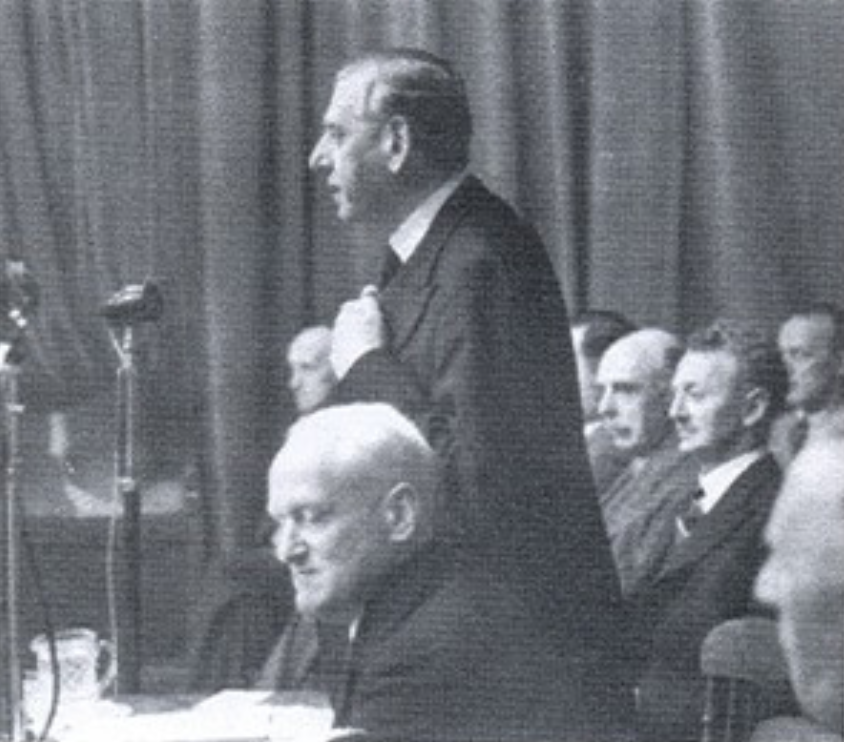
Old Stevenage remained much the same but it was over shadowed by the colossal size of its young namesake: ‘New Stevenage’. The planners had decided that only council housing should be built; this created a working-class community which had difficulty relating to the more middle-class townsfolk in Old Stevenage. A more enlightened planner would have copied the social mix of the old town and replicated it in the new, giving a better balance to the new town. The urban and rural communities had to make the best of their enforced cohabitation and gradually over the fifties and sixties one ‘Stevenage’ emerged as a well- known name on the map, establishing itself as a thriving community with plenty of employment and good living conditions for the majority. Those having left the deprivation of London couldn’t believe their luck when they were handed the keys to a spanking new house, even though the muddy building sites meant that it was sometime before their homes were sparkling clean.
The town was eventually a huge success and at the beginning of the 21st century had almost the highest employment rate (81%)* of anywhere in the country, with those in work earning more than the national average. However back in 1946 CHTL saw it as being far from having a glorious future. *The Economist August 3rd 2013
A Party Invite
An invitation to the Palace garden party, was a jolly hi-light of 1948. On Friday 11th June between the hours of 4 and 6. CHTL, Poppy and Anne hobnobbed with royalty and other distinguished guests in the gardens of Buckingham Palace.
Back in October 1918, as the war was drawing to its close, CHTL had been called upon to entertain royal visitors on morale boosting visits to the men at the Front.
The Prince of Wales came and had tea yesterday; he really is an extraordinary nice boy, though he is 25 years old. He upset his tea cup all over the cloth and was very apologetic. He forgot to ask after you.
Letter to Poppy, Oct 26th 1918
Of course the Prince of Wales, who had spilt his tea in his encounter with CHTL in France, had become king (Edward VIII) but had abdicated as his choice of wife did not meet government approval. The monarch who was in residence was King George VI, his brother.
Poppy and Anne wore new dresses with hats, whereas CHTL had the choice of morning dress, a lounge suit or service dress.
Bill’s Mission
In 1951 Bill left Pakistan to attend Anne’s wedding. In May 1951, he’d written again to offer his resignation from the army. The army had refused his first request to resign, three years earlier. Bill felt that his Christian beliefs did not fit with what he was required to do in the army: for instance, lay ‘booby traps’ or land mines. He was 40 years ahead of his time as it wasn’t until the 1990’s that the world began to wake up to the immorality of that practice, led by high profile campaigners such as Diana, Princess of Wales.
With his resignation from the army finally agreed, Bill had also come home to prepare for missionary work in Pakistan and intended to return there after a years missionary training. He was not going to be a typical western missionary, who went to live in a country but maintained as many of the creature comforts of Western civilisation as possible. Bill did not want to live as a rich white man amongst the people he wanted to reach. His desire was to go and live as one of them: living on their meagre diet, in accommodation like their own, sharing their day to day troubles and joys as an equal not as a superior.
Bill had already shown the communities that he wanted to work in that he wanted to be treated as one of them. As an army major, on his days off he used to visit the missionaries near to where he was stationed:
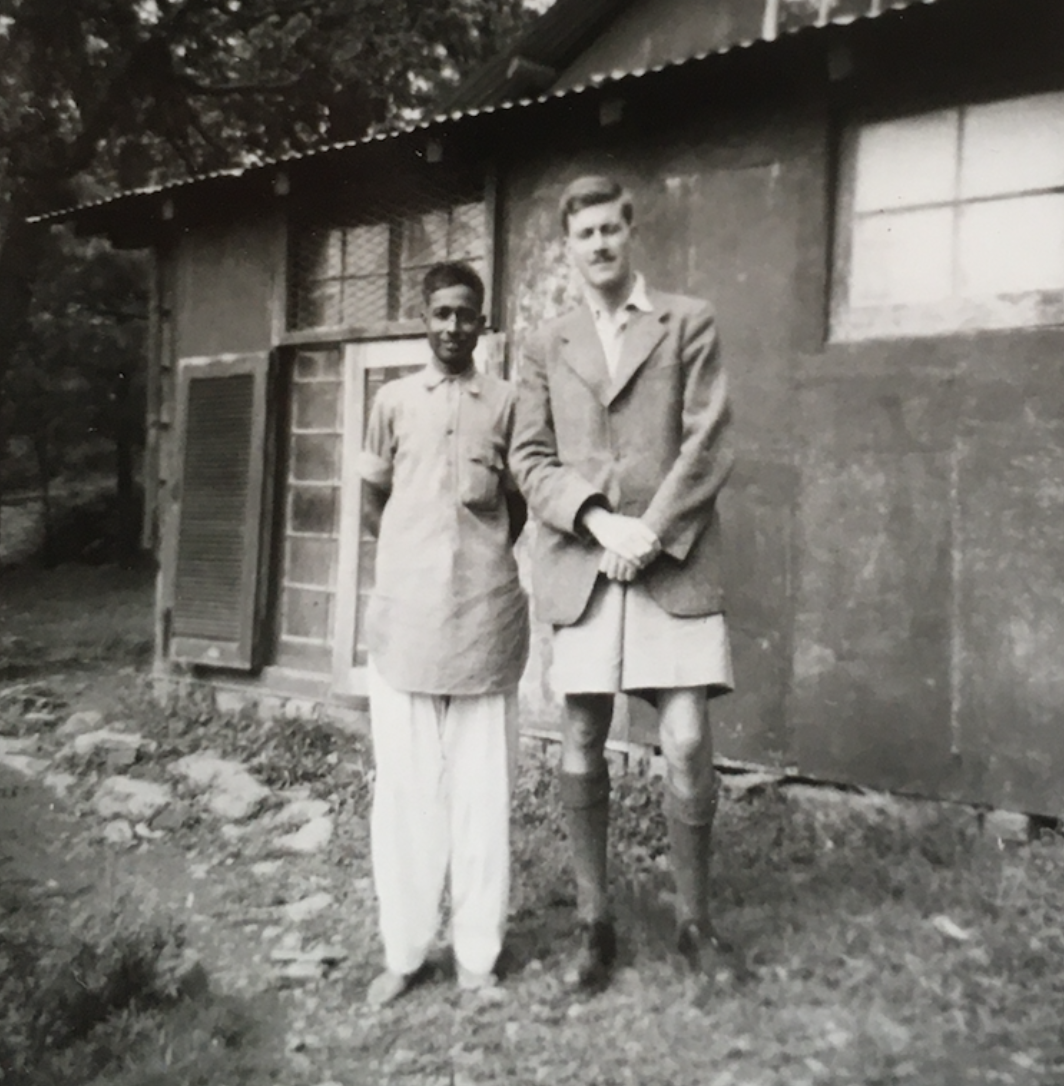
An Indian related that on the Major’s first visit to Marden, the missionaries were away, so it fell to his lot to entertain Bill Lucas until such time as they returned. What a privilege it was to have the Major under his roof! In true Pakistan fashion he prepared food for his guest, set a table before him with a nice white cloth on it, and then produced the food. To his astonishment the Major rejected the chair and table and came down and sat on the floor with the family for the meal. Another shock was soon to follow, for after the meal the Major proceeded to help wash up the dishes. No amount of protesting could cause him to desist. He had won his way into the heart of this simple Christian family.
Extract from ’Practical Christianity’ magazine of The Officers’ Christian Union 1952 edition
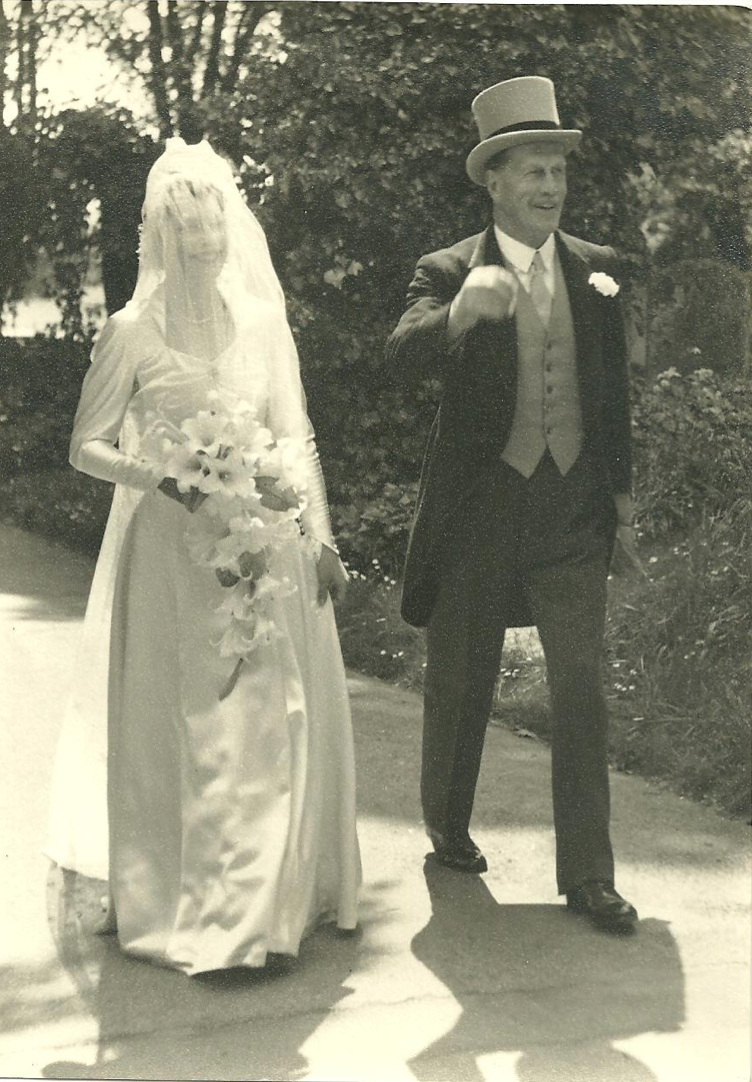
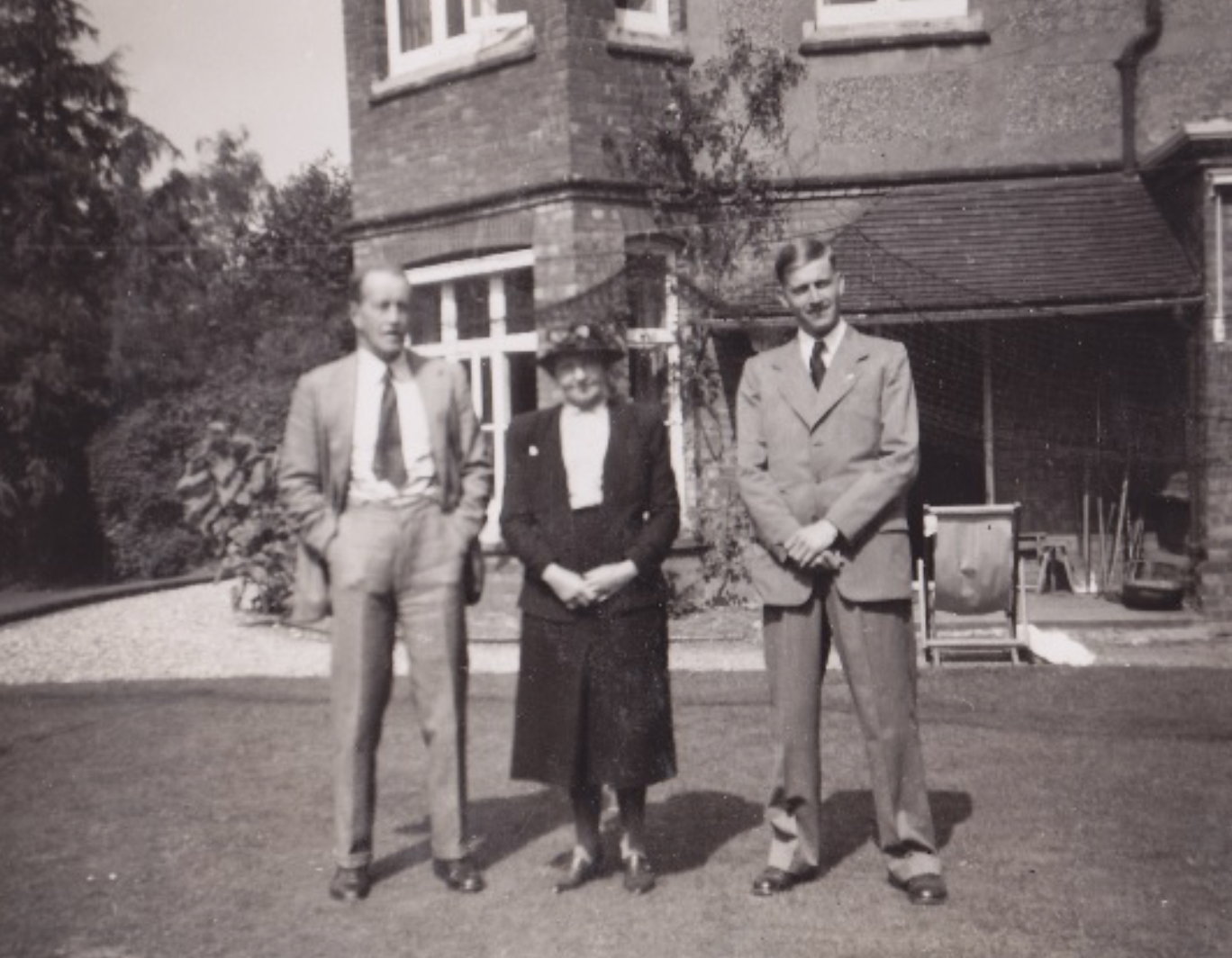
Back home in England Bill began in earnest to prepare himself to return to Pakistan - beginning by eating mainly rice. He spent hours in prayer building himself spiritually for the challenges that lay ahead. His strict COPPs training had instilled in him the need to be fully equipped for your mission and he applied the same exacting discipline as he made ready for his new life in Pakistan.
CHTL would have respected Bill’s courage to stand up and say what he believed. He was uncomfortable with his son’s fiery zeal and open declaration of his faith. These were things to be held privately not to be shouted from the rooftops. Poppy was a lot more sympathetic. There was a strong bond between her and her eldest son, stemming back to the trauma they shared at his birth. Whilst CHTL busied himself with practical jobs like Martha, Poppy sat like Mary and listened.
Portmadoc
Poppy’s notes for 1951:
1951
Thurs Aug: 30 Bill left for Portmadoc
Sund Sep 2 preached on the Sower
Mond Sep 3 Boat capsized
Tues Sep 4 Read it in the morning’s paper 7a.m.
Thurs Sep 6 Hailen 6 a.m. for Portmadoc Service at 3.30 p.m.
Tues Sep 7 Retired Home
Tues Sep 11 Memorial Service Graveley
Thurs Sep 13 Bill’s body found
Fri Sep 14 (Bill had said he would be returning home that day)
Tues Sep 18 Bill buried in Graveley Churchyard.
At the end of August 1951, Bill set off for Portmadoc in Wales; where for the last few years he had volunteered at a Christian camp for boys; possibly the same one that he had attended as a boy and which had changed his life. Bill was in much demand - being a good role model, a war-time hero, and a skilled yachtsman and swimmer. Before he left he told his mother that he would return home on Friday the 14th, the significance of that simple remark struck Poppy two weeks later.
On the Sunday, Bill preached at the camp’s church service on ’The Sower’ one of Jesus’ parables. The Sower represented those like Bill who worked to spread the ’seed’ or God’s words. Some people would listen and respond whereas others would turn away. Bill knew what he’d be facing in Pakistan.
On the Monday Bill took a group of boys out on a sailing trip. His last words before he got in the boat were, "My future lies in the hands of God". The weather looked fine and the yacht, the ’Dorothy’, set sail. A freak storm suddenly blew up and the boat capsized. Bill swam for help. It was a distance he’d swam many times before during the dangerous undercover missions he’d taken part in during the war. This time he never made it to shore; his body was possibly too weak from his meagre diet. Bill died on September 3rd 1951 aged 31, on the twelfth anniversary of the start of the Second World War.
Portmadoc was the Anglicised name for this small Welsh coastal town. In 1974 its name was changed to the Welsh form and is now known as Porthmadog.
CHTL and Poppy had both become quite deaf in their old age. CHTL no doubt suffering ear damage from the tremendous explosions during WW1 battles and from standing too close to the large guns he had over-seen at Grantham and on the front in France. On the day of Bill’s death, they had locked up the house for the night and gone to bed. Neither of them heard the doorbell or the phone ringing incessantly downstairs.
The next morning, for the second time in her life poor Poppy received heart wrenching news from a newspaper flung onto her bed. CHTL couldn’t speak and left Poppy to read the devastating news for herself. A newspaper headline had brought Bill into this world and now it felt like a newspaper headline had taken him out.
Many felt that dear, gentle, kind Bill, who reflected the goodness of his namesake, his great, great grandfather William, by following his Lord so devotedly, was ‘just too good for this world.’
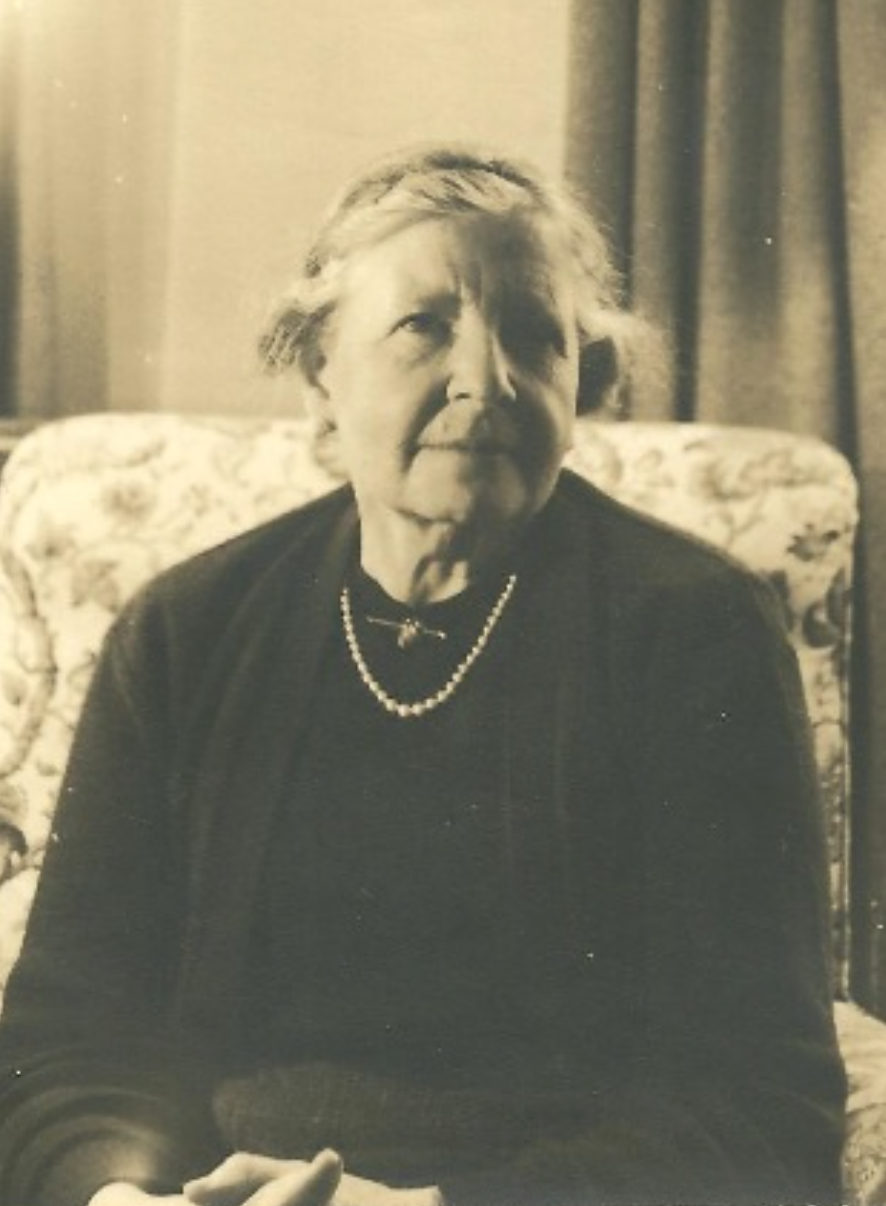
The Boys camp was understandably shaken by this sudden and tragic loss of life. The young often believe that they are immune from death and to have to suddenly face up to the death of their friends was something the boys struggled to come to terms with. On Thursday, September 6th, CHTL and Poppy travelled up to North Wales to attend the memorial service held at Criccieth Parish Church.
It must have been an unbelievably difficult and painful thing to do, but CHTL applied his stiff upper lip and did his duty. How he and Poppy must have ached inside, torn apart by their overwhelming grief - there is nothing worse than losing a child. To make things worse Bill’s body had still not being recovered; although the other casualties had been retrieved from the sea.
The following day CHTL and Poppy ’retired home’ utterly exhausted. Their pain was made worse as still Bill’s body hadn’t been found. In the back of their minds must have been the wild hope that maybe Bill would be found alive. However they were resigned to the fact that Bill had died and went ahead and arranged a Memorial Service for him in their local church in Graveley on Tuesday September 11th, Poppy’s birthday.
Finally on Thursday September 13th Bill’s body was found. CHTL had to make the grim journey to identify his son’s remains which would not have been pleasant considering the time Bill’s body had spent in the sea. On Friday September 14th Bill’s body was brought home. Poppy remembered that ’Bill had said he would be returning home that day’.
Bill was buried in Graveley Church yard on Tuesday September 18.
THE FUNERAL
The funeral of Major Lucas was held very quietly in Gravely on Tuesday morning, only the Rev. R. N. Stoddart, who read the service at the graveside, and Major-General and Mrs C. H. Tindall Lucas, being present.
Newspaper cutting found amongst Poppy’s papers
There was little point for yet another service; all those who had wanted to had paid their respects at the two memorial services. Bill’s funeral was a private time for CHTL and Poppy to say their final goodbyes to their dear son who had entered their lives at such a traumatic period and yet whose presence had kept them both strong and given them hope for the future. Now they had to face the future without their gentle, kind Bill.
The inquest was held and no one was held to blame for the tragic accident:
ACCIDENTAL DEATH VERDICT
Tribute to Major Lucas’s ‘fine spirit’
A verdict of accidental death was returned by the Portmadoc, North Wales, Coroner, at an inquest on Friday on Major Arthur William Tindall Lucas, 31-year-old elder son of Major-General and Mrs C.H. Tindall Lucas, of Northwood, North Road, Stevenage.
Newspaper cutting found amongst Poppy’s papers
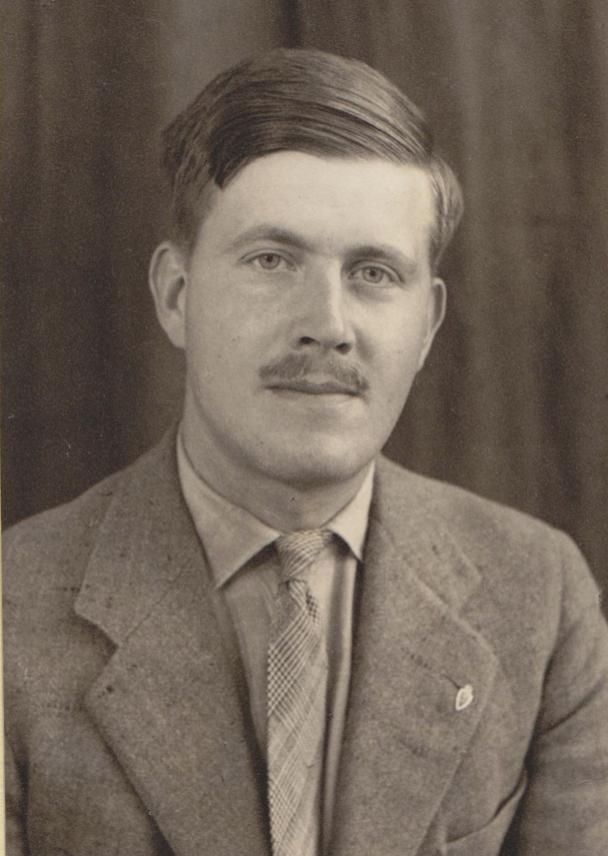
Bob by this time was a missionary in Ethiopia. His devastation at the loss of his brother was made harder by the thought that it should have been him to die young with all his faults and failings not his saintly older brother. However Bob’s strong faith enabled him to believe that his brother was safe in Heaven and that one day he would see him again.
Joys and Sorrows
The 1950’s was a mixed time of joys and sorrows for CHTL and Poppy: Anne had married, but Bill had died. Anne had two beautiful daughters, Amelia and Amanda, who CHTL doted on and who were a real comfort to their grandparents following Bill’s death. They won many a smile from sorrow. CHTL delighted in taking them to a nearby bridge over the railway, where they would squeal with glee as a train roared along the tracks below leaving them in a cloud of steam. However the doting grandfather was restricted in what he could do with his granddaughters - for instance he was banned from taking them out in his car out of concern for their safety!
Bob, who like his father had been very anxious about marrying for fear of marrying the wrong person, finally settled down to married life in 1953 with Fern Evoy, a Canadian nurse who was working for the Ethiopian Royal family. Although pleased for Bob, CHTL had one regret over Bob’s choice of wife: Fern being Canadian meant that Bob’s precious furlough was now split between Canada and England which meant that his parents saw even less of their son.
Bob and Fern’s daughter Elizabeth was born in 1954, followed by Margaret in 1955. Sadly baby Margaret didn’t reach her first birthday but died from a blood disorder. Yet more sorrow for the Lucas family.
Fern became pregnant again and she and Bob were excited about the birth of another child. Heartbreakingly another unexpected tragedy struck the family when in 1956 Fern died in child birth along with baby Michael.
Bob struggled to cope as a single parent on the mission field but it proved too much. The missionary society gave him some compassionate leave to give him time to readjust. Bob made the long journey back to England with Elizabeth.
CHTL and Poppy didn’t hesitate to offer their son and granddaughter a home - relishing the chance to spend time with them. They were hands-on grandparents, helping to look after Elizabeth whilst Bob tried to sort out the next stage in his and his daughter’s lives. Elizabeth remembers slipping in the bath and banging a tooth. She was quickly scooped up in a towel and sat on her concerned grandfather’s lap to be consoled.
Poppy would read to her granddaughters some of her own childhood favourites which she had read in turn to her children. These included 'Froggy would a wooing go' and gruesome tales about vegetables who metamorphosed into humans only to be chased and chopped up for the stew pot! The World War One favourite: ’Daisy, Daisy’ was often sung by Poppy, recalling the romantic days of her and CHTL’s courtship. Simple treats were turned into wonderful delights, such as water biscuits spread thickly with butter and then sandwiched together so that yellow worms squirmed out through each of the biscuit’s holes! Poppy also liked to take her granddaughters for walks but, in contrast to their grandfather’s noisy outings, these were along quiet country lanes where the local wildlife could be spotted and named.
Water-colour painting was Poppy’s gentle hobby and she often took herself off into the countryside to capture a pleasing landscape. It was time that she could escape by herself and maybe have time to remember happy times with those whom she now grieved for: or maybe it was a time to just shut the world and its troubles out and to concentrate on a small spot of the earth’s great beauty.
CHTL kept up his involvement in the local community and was remembered for his quiet acts of kindness. Anne recalled telling her father about a woman that she had met on the train who had to travel great distances to visit her son who had been confined to a Mental Hospital since the Great War. Somehow CHTL quietly pulled some strings and arranged for the man to be moved closer to his mother, making her life considerably easier.
Horse Racing
In his later years CHTL discovered a new hobby when he took to going to the races after he became too old to fish or shoot. Like all his previous sports and pastimes, CHTL was very serious about mastering the art. Nothing was ever done in half-measures and time and discipline had to be applied. He kept a form book and would rise early on Race days to study the form. He never bet a lot, maybe 5/- to 10/-, but always made enough to cover his expenses and to treat Poppy and his children to an occasional day out at the Races. He was a member at Newmarket, Cheltenham, Newbury, Towcester and Ascot.
A newspaper wanted CHTL to be their regular tipster which he was very flattered by, but decided not to change an enjoyable hobby into something that resembled work: the responsibility of trying to guide other people away from making foolish bets would have taken the enjoyment out of it.
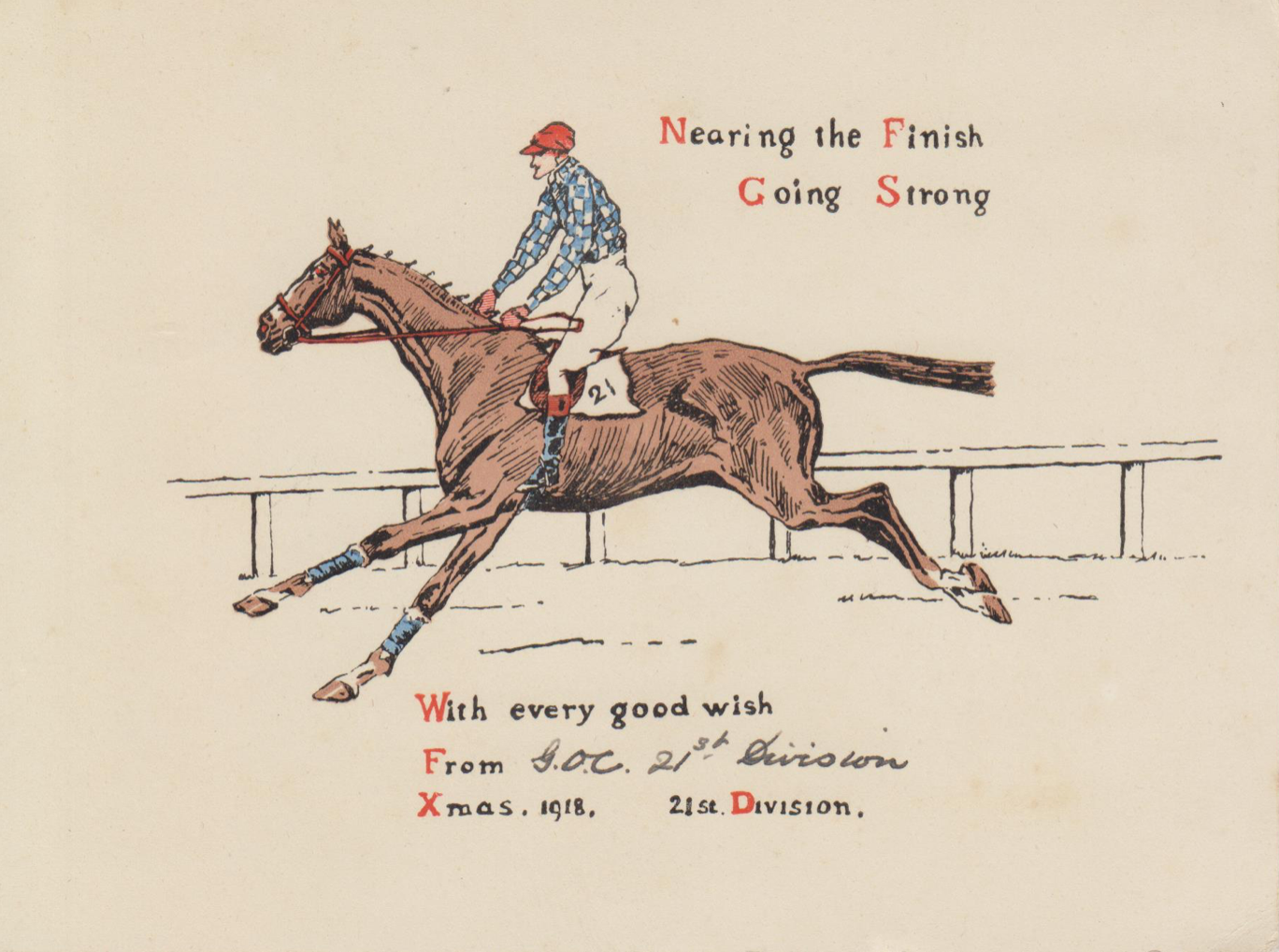
As a responsible father, CHTL didn’t like the idea of his sons following him into betting on horses, but he told them that he would teach them how to do it properly so that they didn’t lose money overall. Both declined the offer - their minds being set on higher things! However Poppy always placed a small bet on a grey at the Derby each year. It’s not known whether she ever won anything: CHTL must have despaired at her romantic rather than scientific approach to betting!
The Final Fence
Poppy’s notes for 1958:
1958
Easter Monday
April 7 C. died at Towcester Races
Thursday 10 C. buried at Graveley Church yard.
It was at the Races that CHTL died. He wouldn’t have wanted a long drawn out death as his father-in-law had suffered:
It must be awful for a man who has always been a man in every sense of the word suddenly becoming helpless, instead of doing things for other people, and feeling that he is a dead weight.
CHTL’s letter to Poppy on her father’s death
As many commented afterwards CHTL’s was a very fitting end. He died helping others, ‘so typical of his very generous and kindly nature’– he was helping to push a car stuck in mud at Towcester race course. He died at the Races where he was possibly at his happiest, doing an act of kindness, trying to extract a car out of the mud where it no doubt had chosen to sink in a wilful act of defiance of its poor long-suffering owner. CHTL would have laughed at the thought that it was a car that once again had got the better of him! He won his final smile from sorrow.
